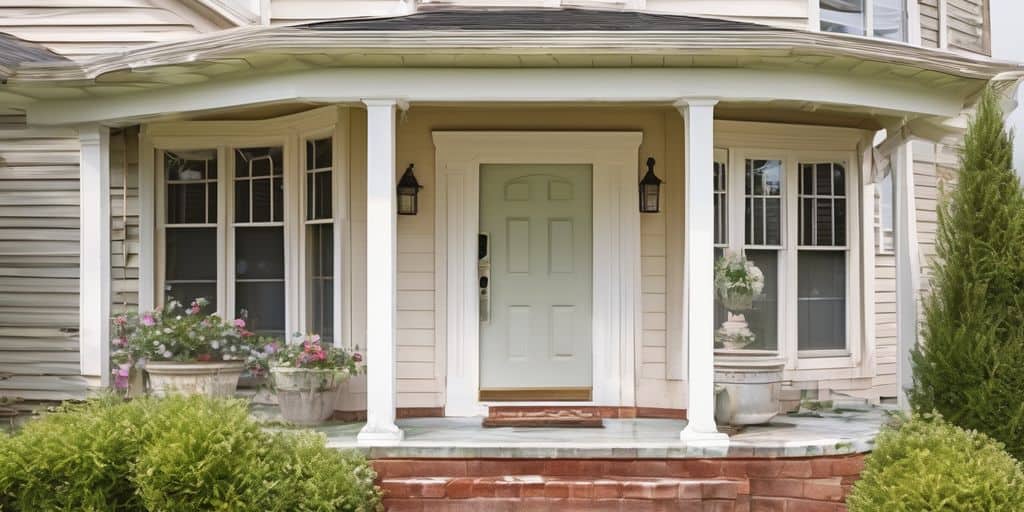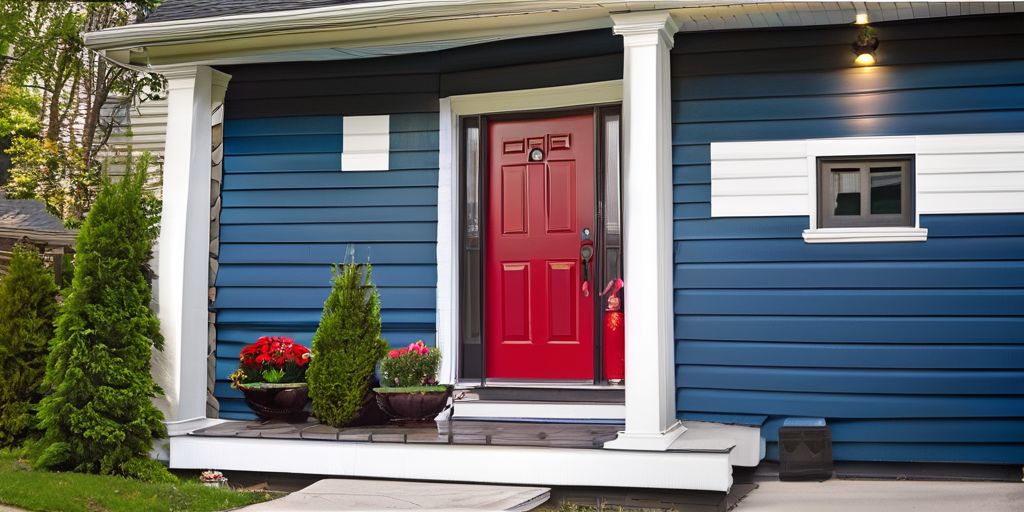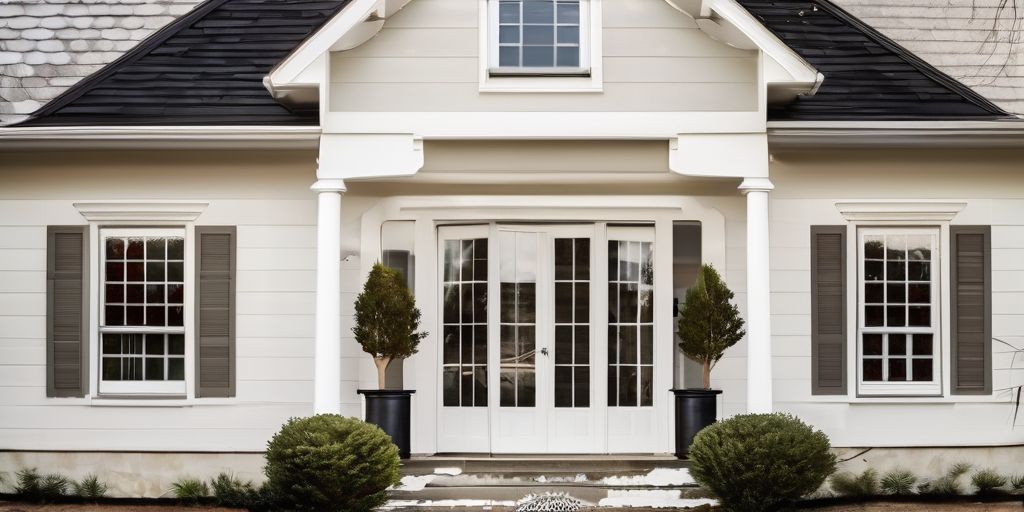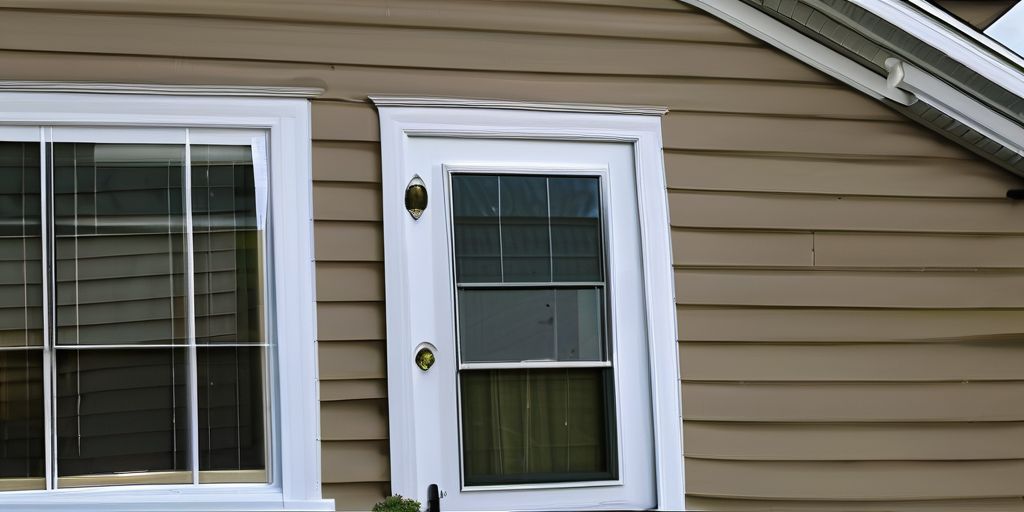Dealing with mold and mildew on vinyl siding is crucial for keeping homes in Milton looking good and staying strong. Mold and mildew not only create ugly spots but can also cause serious damage if ignored. This article will help homeowners learn how to spot, clean, and stop mold and mildew on vinyl siding. It also offers tips on when to get professional help.
Key Takeaways
- Mold and mildew can cause both cosmetic and structural damage to vinyl siding if not addressed.
- Natural cleaners like vinegar and lemon juice are effective and eco-friendly options for removing mold and mildew.
- Regular upkeep and cleaning are key to preventing mold and mildew from returning.
- Proper ventilation and thoughtful landscaping can help keep moisture levels down and prevent mold growth.
- In severe cases, it’s best to call in professionals to handle mold and mildew problems.
Understanding Mold and Mildew on Vinyl Siding
Causes of Mold and Mildew
Mold and mildew thrive in environments that provide moisture, warmth, and nutrients. On vinyl siding, these fungi can find the perfect conditions to grow, especially in the humid climate of Milton. Here are some common causes:
- Moisture accumulation from rain or humidity
- Lack of sunlight exposure
- Poor ventilation around the siding
- Organic debris like leaves and dirt
Signs of Mold and Mildew
Identifying mold and mildew early can prevent extensive damage. Signs of mold and mildew include:
- Discoloration on the siding
- Black or green spots
- A musty odor
Regular inspections can help catch these signs early before they become a bigger problem.
Effective Cleaning Techniques for Mold and Mildew Removal
Using Natural Cleaning Solutions
When dealing with mold and mildew on vinyl siding, natural cleaning solutions can be both effective and eco-friendly. Vinegar, a common household item, is known for its natural disinfectant properties and can be used to combat mold growth. A simple solution can be made by mixing one part water with one part white vinegar.
Step-by-Step Cleaning Guide
- Prepare the cleaning solution by mixing equal parts of water and white vinegar.
- Apply the solution to the affected areas and let it sit for an hour.
- Use a soft brush or cloth to gently scrub the mold away.
- Rinse the area with clean water and allow it to dry completely.
For stubborn mold spots, baking soda can be added to the vinegar solution to create a more potent paste. Apply this paste directly to the mold and let it sit before scrubbing.
Regular cleaning at least once a year is recommended to prevent mold and mildew buildup.
How to Kill Mold on Vinyl
Using Lemon Juice and Vinegar
Lemon juice and distilled white vinegar are non-toxic and effective in killing many mold species. Here’s how you can use them:
- Wet the moldy surfaces with water using a garden hose or by hand.
- Apply lemon juice or vinegar to the surface.
- Gently scrub the area.
- Let it sit for at least a half hour or until it evaporates.
- Repeat as needed.
These natural solutions are great because they are safe for both you and the environment.
Using Denatured or Rubbing Alcohol
Denatured or rubbing alcohol (the higher the percentage, the better) can also be used to kill mold on vinyl. Follow these steps:
- Spray or pour alcohol onto the surface.
- Gently scrub the area.
- Allow the alcohol to sit for at least a half hour or until it evaporates.
- Repeat as needed.
This method is less acidic than using lemon juice or vinegar, making it a good alternative for more delicate surfaces.
Regular cleaning and maintenance can help prevent mold from becoming a problem in the first place. If you live near the Charles River in Milton, the extra moisture might make mold more common, so be vigilant!
Preventing Mold and Mildew Growth on Vinyl Siding
Regular Cleaning and Maintenance
To keep mold and mildew at bay, it’s essential to clean your vinyl siding regularly. Aim to clean at least once or twice a year. If your home is in a humid or shaded area, you might need to clean more often. Regular cleaning helps remove dirt and grime that can trap moisture, which is a breeding ground for mold.
Proper Ventilation and Landscaping
Proper ventilation is key to controlling moisture and humidity. Ensure that your home has good airflow, especially in areas prone to dampness. Additionally, landscaping plays a significant role. Keep plants and shrubs trimmed and away from the siding to allow air to circulate. This helps reduce the chances of mold and mildew forming on your vinyl siding.
Consistent maintenance and good ventilation are your best defenses against mold and mildew. By taking these steps, you can keep your vinyl siding looking great and lasting longer.
If you’re in the Milton area, consider taking a stroll through the beautiful parks to get some inspiration for your landscaping. Keeping your yard well-maintained not only boosts curb appeal but also helps in preventing mold and mildew.
Eco-Friendly Products for Cleaning Mold and Mildew
Commercial Eco-Friendly Products
When it comes to cleaning mold and mildew, there are several eco-friendly commercial products available. These products are designed to be effective while also being safe for the environment. Some benefits of using eco-friendly cleaners include:
- Non-toxic: Safe for your family and pets.
- Biodegradable: Break down naturally without harming the environment.
- Effective: Strong enough to tackle mold and mildew without harsh chemicals.
DIY Eco-Friendly Solutions
Creating your own cleaning solutions can be both fun and rewarding. Here are a couple of simple recipes:
- Vinegar and Baking Soda: Mix one part water with one part white vinegar. Spray the solution on the affected area and let it sit for an hour before scrubbing with a brush. For tougher stains, sprinkle baking soda on the surface before spraying the vinegar solution.
- Lemon Juice and Salt: Combine lemon juice with salt to create a paste. Apply the paste to the moldy area and let it sit for a few minutes before scrubbing and rinsing.
Using natural ingredients like vinegar and lemon juice not only helps in removing mold but also ensures that no harmful chemicals are left behind.
By opting for eco-friendly solutions, you can effectively clean mold and mildew while also contributing to a healthier planet. If you’re in the Milton area, consider taking a stroll through the beautiful Milton Town Park after a successful cleaning session!
When to Call in Professionals
Severe Mold Infestations
Sometimes, mold and mildew can become persistent problems despite your best efforts. Here are some signs that it’s time to call in the experts:
- Extensive mold growth that covers large areas of your siding.
- Recurring mold issues even after thorough cleaning.
- Visible damage to the siding, such as warping or cracking.
- Health issues among family members that could be related to mold exposure.
It’s essential to recognize the limits of DIY efforts. If you’re facing persistent issues despite regular maintenance, it might be time to consult a professional.
Professional Cleaning Services
Professional teams are adept at managing the entire cleaning process, from preparation to completion. They bring a wealth of knowledge about the best techniques and materials for each unique situation. A skilled team can anticipate and avoid common pitfalls, reducing the likelihood of time-consuming corrections later on.
- They have specialized tools and solutions for thorough cleaning.
- Professionals can handle large-scale infestations safely.
- They ensure that the mold is completely eradicated, preventing future growth.
By understanding when to call in the professionals, you can ensure your home’s exterior remains in top condition, free from mold and mildew. If you live near the Milton area, you might be familiar with the local climate challenges that can exacerbate mold issues. An exterior painter can also help maintain the beauty and longevity of your vinyl siding.
Sometimes, tackling a home project on your own can be overwhelming. If you’re unsure or the task seems too big, it’s best to call in the experts. Our team at We Paint Siding is ready to help you transform your home with professional painting services. Don’t wait—visit our website today to learn more and get a free estimate!
Conclusion
Keeping your vinyl siding free from mold and mildew is key to maintaining the beauty and strength of your home in Milton. By using simple, natural cleaning solutions like vinegar and lemon juice, you can effectively tackle these pesky problems without harming the environment. Regular cleaning and proper ventilation are essential steps in preventing mold and mildew from taking hold. Remember, if the situation gets out of hand, don’t hesitate to call in the professionals. With these tips, your vinyl siding will stay clean and fresh for years to come.
Frequently Asked Questions
What causes mold and mildew on vinyl siding?
Mold and mildew grow on vinyl siding when there is a lot of moisture, warmth, and organic material like dirt or leaves. Poor ventilation and lack of sunlight can also make it easier for mold to grow.
How can I tell if I have mold or mildew on my vinyl siding?
Signs of mold and mildew include black, green, or white spots on the siding. You might also notice a musty smell around the affected area.
What natural cleaners can I use to remove mold and mildew?
You can use a mix of equal parts water and white vinegar. This solution is safe and effective for cleaning mold and mildew without using harsh chemicals.
How often should I clean my vinyl siding to prevent mold and mildew?
It’s a good idea to clean your vinyl siding at least once or twice a year. If you live in a humid area or your house is shaded, you might need to clean it more often.
Are there eco-friendly products for cleaning mold and mildew?
Yes, there are eco-friendly commercial products available. You can also use DIY solutions like vinegar and baking soda, which are both safe for the environment and effective.
When should I call a professional to deal with mold on my vinyl siding?
If you have a severe mold infestation or if the mold keeps coming back despite your efforts, it’s best to call a professional. They have the tools and expertise to handle serious mold problems.





